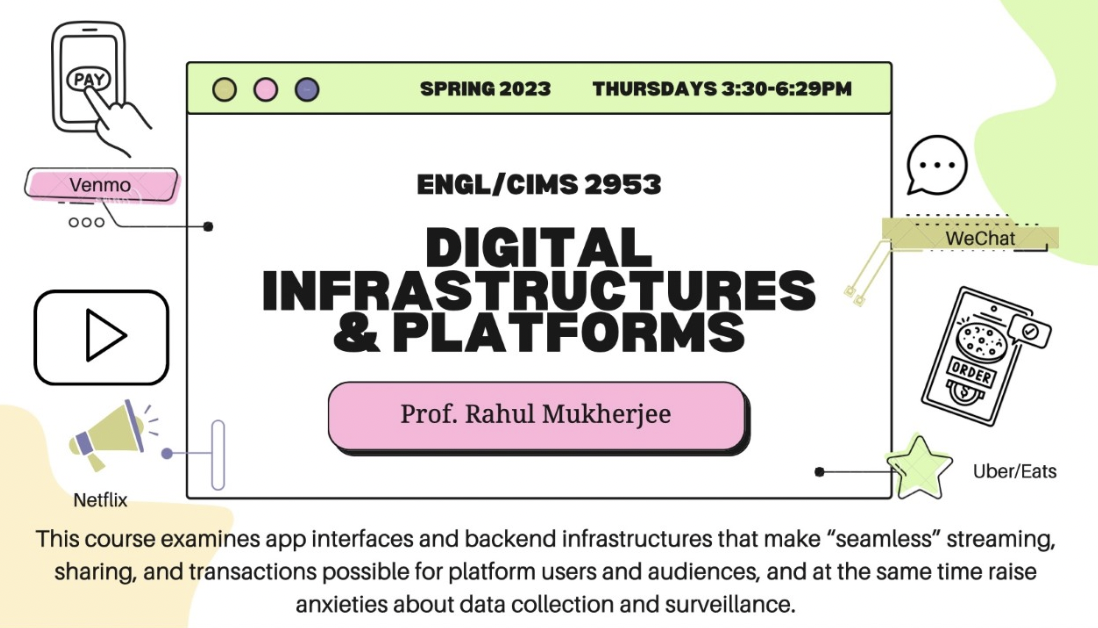
Platforms ranging from ride-hailing and food delivery apps (Uber and Swiggy) to subscription based audiovisual content providers (Netflix and SonyLIV) incessantly touch our everyday lives. These platforms mediate multisided transactions (markets) and operate based on algorithmic collection, circulation, and monetization of user data. In this course, we will engage with a variety of readings about multi-situated study of apps, paying attention to both app interfaces as well as their connection to (in)visible infrastructures and opaque algorithms. In what ways do data storage infrastructures and content delivery networks make “seamless” streaming on Hulu/Prime Video and instantaneous digital payments on Venmo and PayTM possible? We will begin with how infrastructures have been studied in the past, and then in particular focus on media infrastructures such as satellite systems, optical fiber cables, cell antennas, and data centers. The course readings will consider the varied definitions of platforms and examine the socio-political effects of the proliferation of platforms in different regions of the world, including “non-Western”/“Global South” histories of platforms. Through an analysis of TV shows like Succession (HBO) and Paatal Lok (Prime Video), we will be examining how super apps and platforms like WeChat (China), LINE (Japan), and Jio (India) are discussed in society and try to comprehend in what ways have discourses of platformization been shaped by governmental regulation, cultural practices, and socio-politics of regions. Through screenings and interpretations of documentaries such as Rity Panh’s The Land of the Wandering Souls and Laura Poitras’ CitizenFour, we will attempt to grasp the labor and energy that go into building internet and data surveillance infrastructures. The course aims to entwine humanities approaches studying the aesthetics of address of interfaces and infrastructures as well as social science frameworks studying regulation and political economy of platform companies. During the course, we will explore questions like: Why do Big Tech companies float competing discourses about platforms? What are the connections between infrastructural investments and platform capitalism? What does it mean to have digital lives in a platform society? In what ways do digital infrastructures and platforms create the foundations for smart cities and Internet of Things? What are the environmental effects of media infrastructures? Course assignments include a final research paper (2000 words) as well as project-based case studies of platform companies and socio-material assessments of infrastructures.
Courses > 2023 Spring
Electives
401 | SEM | Rahul Mukherjee | R 3:30-6:30pm | MEYH B6
Electives
CIMS 2953 - DIGITAL INFRASTRUCTURES AND PLATFORMS
401 | SEM | Rahul Mukherjee | R 3:30-6:30pm | MEYH B6
